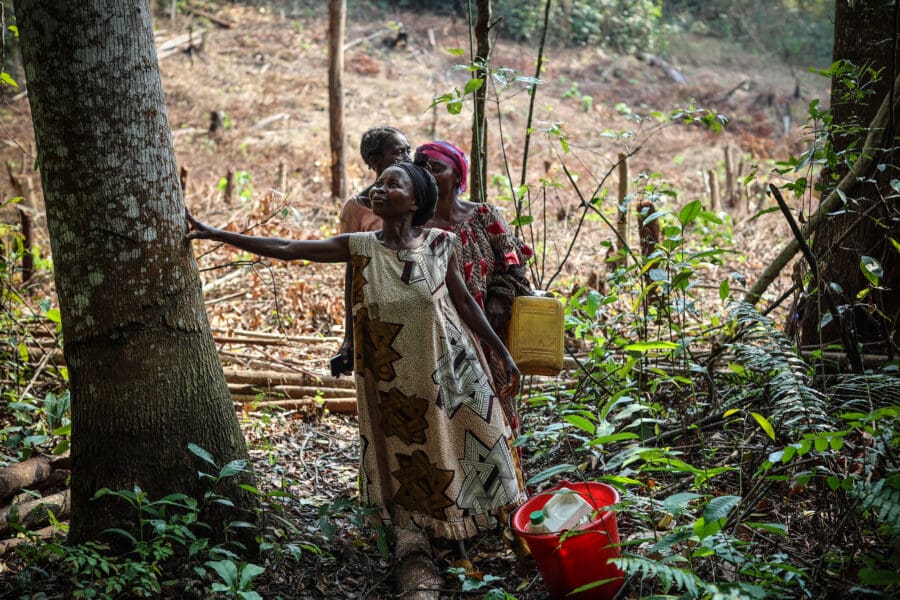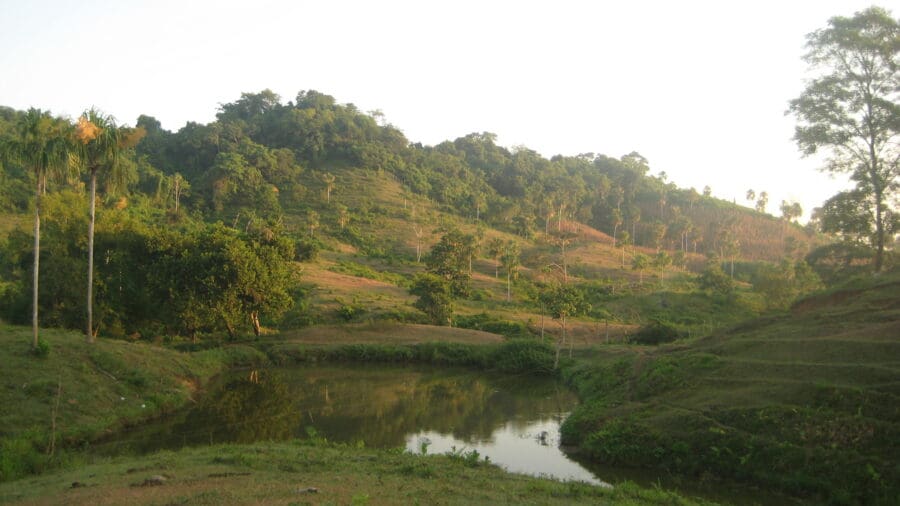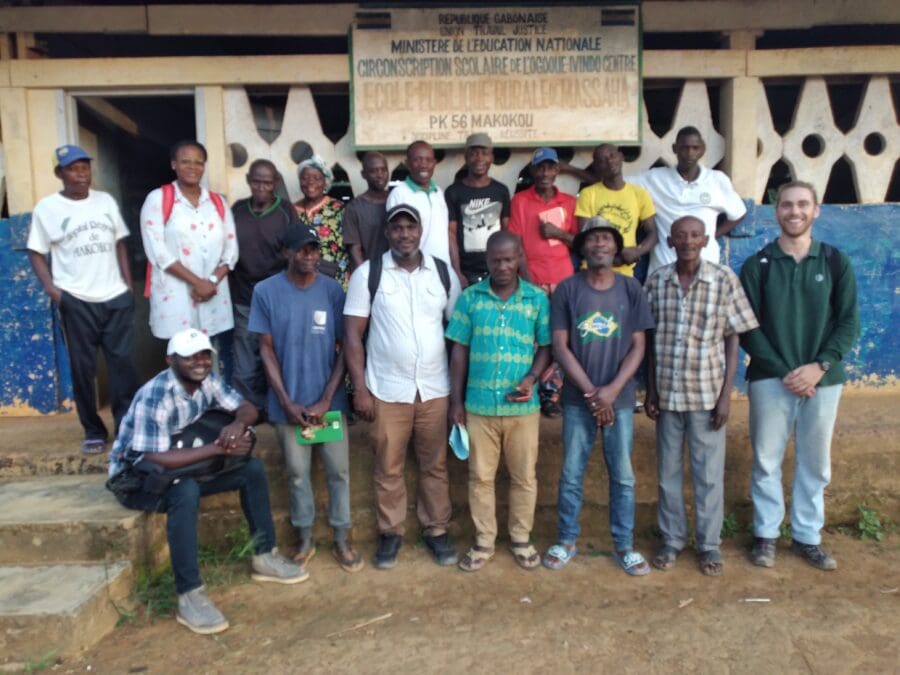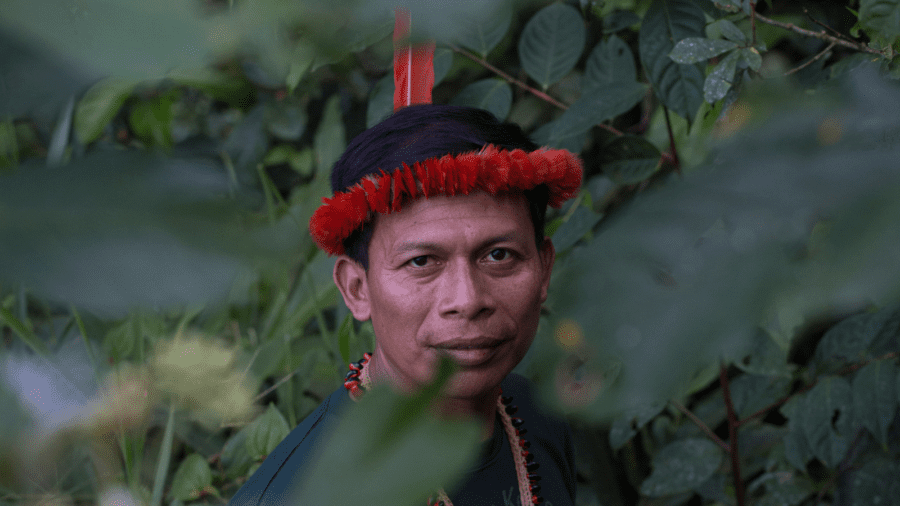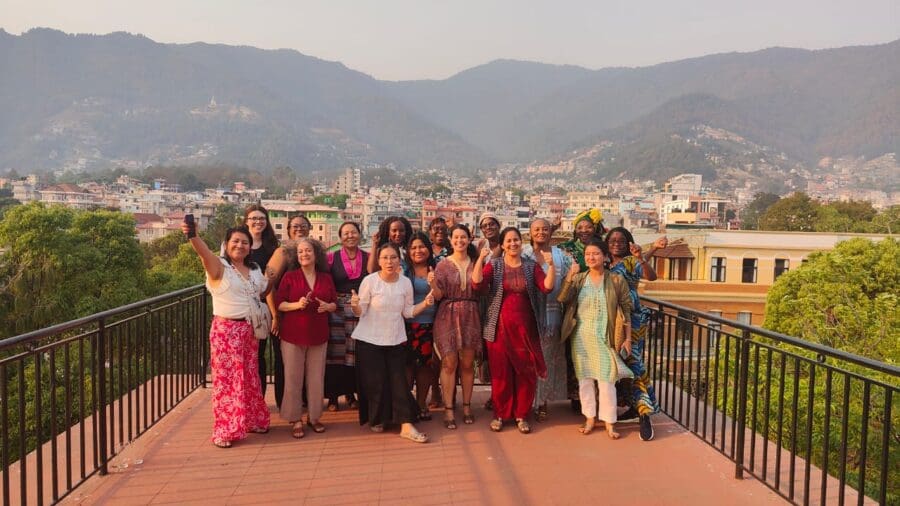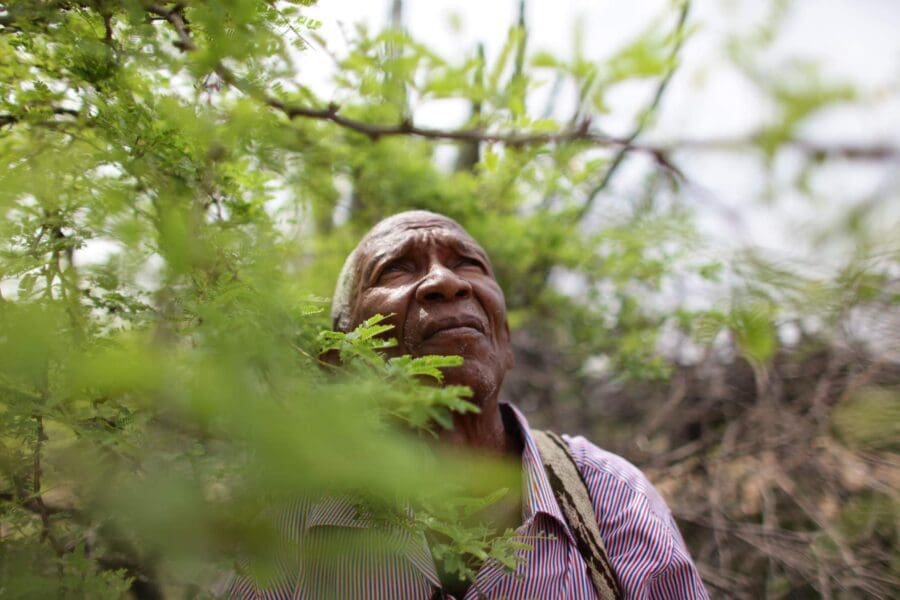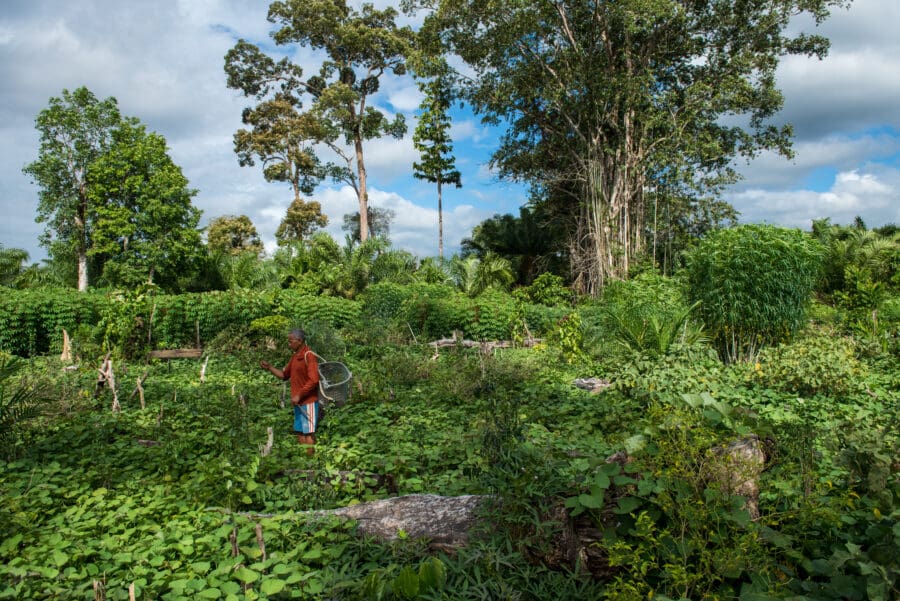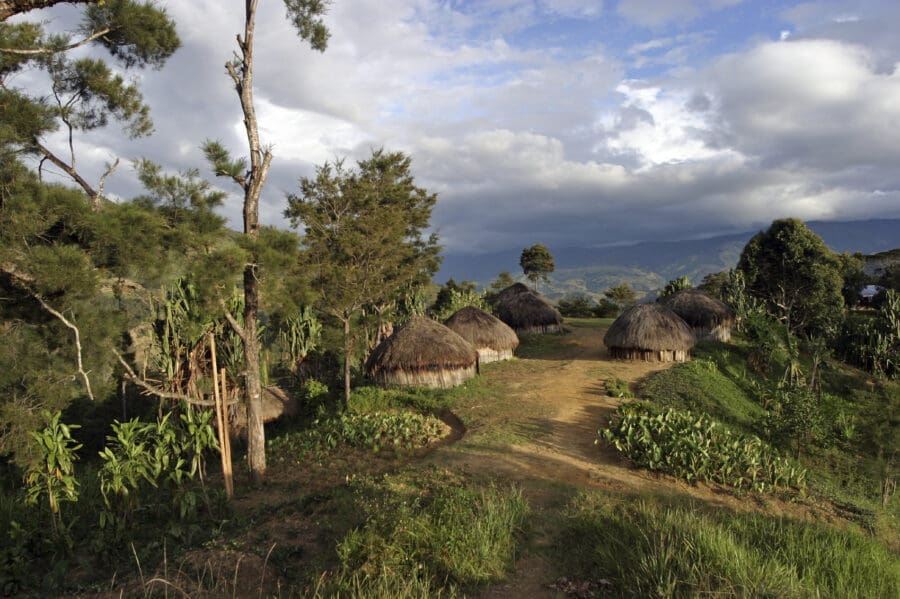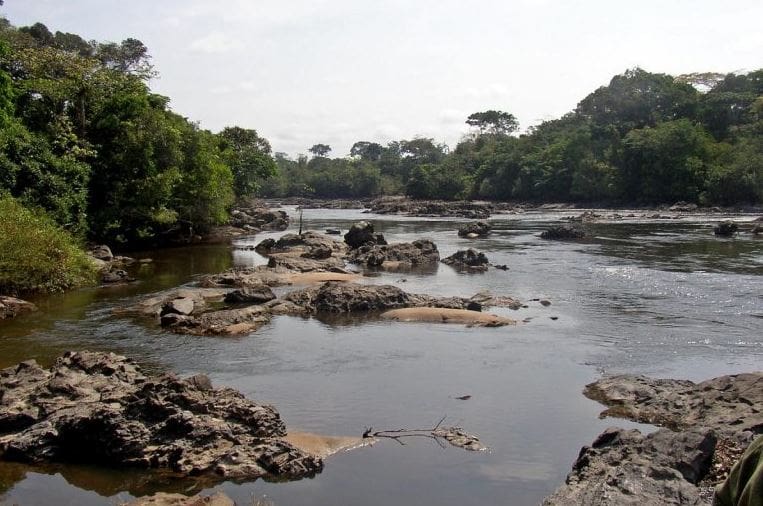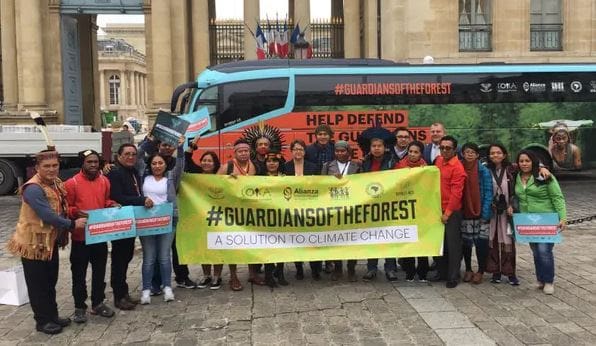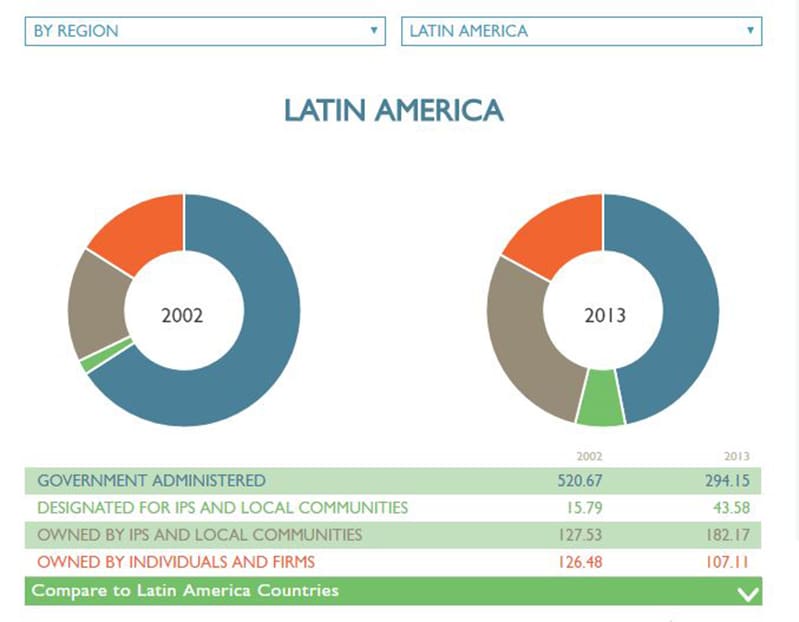Building on the State of Funding report published in April 2024, this blog post shares important updates on finance for Indigenous Peoples', Afro-descendant Peoples', and local communities' tenure and forest guardianship and examples of how direct funding is already driving important progress in tropical forests and other key ecosystems.
After decades of being omitted from the UN’s biodiversity convention, Afro-descendant Peoples in Latin America and the Caribbean got great news at the 16th Conference of the Parties to the UN Convention on Biological Diversity (CBD) recently held in Cali, Colombia.
Gabon’s Massaha communities are documenting the rich biodiversity stored in their ancestral territories to demonstrate the transformative power of community-led conservation. Can they help one of the world’s most forested countries conserve 30% of its biodiversity by 2030?
A report aims to influence the localization agenda and improve bilateral policies and practices to ensure that more direct, fit-for-purpose support reaches Indigenous Peoples, local communities, and Afro-descendant Peoples and their supporting organizations to secure tenure rights and conserve key ecosystems and biodiversity.
The Women in Global South Alliance (WiGSA) hosted its second strategic meeting in Kathmandu, Nepal from April 30–May 2, 2024. Armed with a feeling of sisterhood and common purpose, women leaders from 11 countries across Asia, Africa, and Latin America overcame jet lag to meet in person to discuss strategies on how best to support the women and girls they represent.
A declaration released at a press briefing on June 15 highlights significant overlap between lands claimed by Afro-descendant Peoples in Latin America and the Caribbean and biodiversity hotspots; calling for the inclusion of the term Afro-descendants in the Convention on Biological Diversity (CBD) and UN Framework Convention on Climate Change (UNFCCC).
After a five-year hiatus, the World Bank held its Land Conference on May 13–17 in Washington, D.C., bringing together over 1,000 practitioners, donors, advocates, civil society representatives, and government officials. The takeaway was clear: The case for land tenure security as a prerequisite for climate, development, and biodiversity goals has now firmly been made, but many of the same challenges persist in advancing rights-based agendas.
The recent release of the Second Edition of Who Owns the World’s Land? offers an important moment to take stock of the global state of Indigenous, Afro-descendant, and local community land rights recognition. The data in the report covers 73 countries, which cumulatively comprise 85% of the world's land area, and gives a comprehensive snapshot of the global landscape for community land rights at a critical moment for people and the planet. Here are five of the biggest takeaways from the report.
From September 12–14, 2023, the African Land Institutions Network for Community Rights (ALIN) will hold its 4th regional conference in Arusha, Tanzania. Land institutions from over a dozen countries will share lived experiences, opportunities, and challenges to further the community land rights agenda in Africa, with Indigenous and local community women, youth, and pastoralists taking center stage.
According to a new report by RRI, existing national laws have the potential to recognize Indigenous Peoples’, Afro-descendant Peoples’, and local communities’ rights to own or control more than 260 million hectares (Mha) of land across the world—an area twice the size of Peru.
The increased interest in carbon markets comes with a number of risks. Many forest carbon offsetting schemes are located in lands historically claimed, inhabited, and used by Indigenous Peoples and local communities but oftentimes the rights of these communities have not been secured, putting their well-being at risk — and threatening the future of carbon markets.
Recognizing secure tenure rights for local communities and Indigenous Peoples is one of the key drivers of social peace and sustainable economic development. Addressing the common need for a platform to continue sharing experiences and knowledge, we helped establish the African Land Institutions Network for Community Rights (ALIN). To assess progress since meeting in Antananarivo, Madagascar in 2019, the 3rd ALIN Conference will be held in a hybrid format in Lomé, Togo and online from October 12-14, 2021.
A new operational guide is set to help Indigenous and local communities sustainably manage their forest concessions in the Democratic Republic of the Congo (DRC).
Em nome da Coalizão Rights and Resources Initiative (RRI), uma rede internacional de Povos Indígenas, Quilombolas, organizações comunitárias locais e seus aliados, estou escrevendo para informá-lo de nosso profundo desalento com o recém-lançado Relatório Planeta Vivo 2020.
“They started the project by taking away communities’ land without their consent, using intimidation and all kinds of misplaced government power to evict them from their own customary land,” said Kipalu, who now works for the Rights and Resources Initiative in Washington, D.C.
Alain Frechette of the Rights and Resources Institute said this was the most cost-effective way to reduce emissions. “Community-owned land sequesters more carbon, has lower levels of deforestation, greater biodiversity and supports more people than public or privately owned forest,” he told the gathering of indigenous leaders, supporters and journalists.
By Sam Eaton Even the monsoon rains don’t keep the women of Ghunduribadi, a tiny tribal village in India’s eastern state of Odisha, from patrolling…
Who has legal ownership over the world’s forests? And how has that ownership changed over time? RRI’s new interactive Forest Tenure Tool lets you compare…
As seen on TerraNullius Alexandre Corriveau-Bourque is a Tenure Analyst with the Rights and Resources Initiative, and one of the lead researchers of “What Future for…
Although Indigenous Peoples and local communities have legal ownership of over 33 percent of Latin America’s forests, overlapping claims to their lands continue. In an…
Como se ven en Servindi 31 de marzo, 2014.- El martes 1 de abril el ministerio del Ambiente anunciará la suscripción de un convenio de cooperación…
2013 saw a lot of serious progress in forest tenure reform: legal judgments that upheld the rights of Indigenous Peoples and local communities; successful local…
Photo: Aljazeera As seen on Ethiopia – Land for Sale
Survival: L’approbation d’un projet gazier au Pérou annonce une véritable catastrophe pour les Indiens isolés

